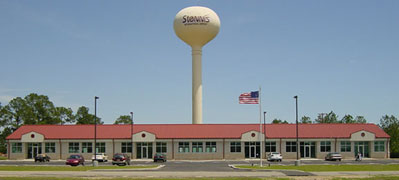Second buy of camera maker in the last year builds out portfolio
TORONTO—Optech, a maker of laser scanners and other survey instruments, has acquired Geospatial Systems, Inc. (GSI), a firm that makes cameras and other imaging products, including some radar-based detection products for homeland security applications. The acquisition follows that of Belgian camera maker Dimac in March of 2010, and points to Optech’s desire to be a solution-oriented company in the lidar field.
“Dimac had a very specific technology for very high-resolution imagery with full motion compensation,” explained Brent Gelhar, VP of sales and strategy at Optech. Then, “we were approached by the GIS guys down in Rochester, and they said they had some technology that they felt was very complementary. One thing led to the next, and now we’ve broadened out the camera offerings.”
Specifically, GSI has a suite of interchangeable metric digital imaging systems called kinematic camera modules, and its cameras are very stable, temperature corrected, and have kinematic motions for the lenses, which Dimac doesn’t have, according to Gelhar.
GSI has had many implementations with Optech’s ALTM lidar systems. TerraPix, which includes a range of metric sensors, is a common platform for delivering custom solutions tailored to its customers’ airborne survey and mapping, asset management, and reconnaissance and surveillance requirements.
![]()
This fall, GSI announced the delivery of its TerraPix system to Merrick & Company, as part of their helicopter-based lidar solution.
Plus, he said, GSI “have a lot of technologies that fit into very small packages, such as UAVs. It’s a very scalable solution.”
The buy brings about 15 employees, and allows Optech also to move its U.S. sales office into GSI’s Rochester-area headquarters. “Up until now, we’ve done everything out of the Mississippi office,” Gelhar said, but that’s primarily an R&D facility, and this allows U.S. sales and support to improve.
Gelhar claims that Optech is the only company in the airborne lidar business that offers global 24/7 support. “In the past, we didn’t have our own cameras,” he said, “so we couldn’t pass on that level of support. Now we can offer a full package of hardware, software, the complete requirement, and they get that 24/7 support … we take full responsibility for everything. That’s huge in the airborne business, where each hour you’re grounded can mean thousands of lost dollars.”
It’s possible, too, that Optech is not done acquiring, though this largely fills out the company’s camera needs, Gelhar said. “Everything we had done for 36 years was organic growth, but we see now that for the size we’re at we need to grow more than just organically. We see how the lidar business is expanding. It’s not just capturing point clouds. It’s complete solutions. Both ground and air-based lidar have become more of a mainstream data deliverable, where 10 or 15 years ago it was more of an esoteric nice to have.
“We are looking at all the ways necessary to expand and have an even wider offering of products. As the opportunities come along, we’ll look at them case by case.”






